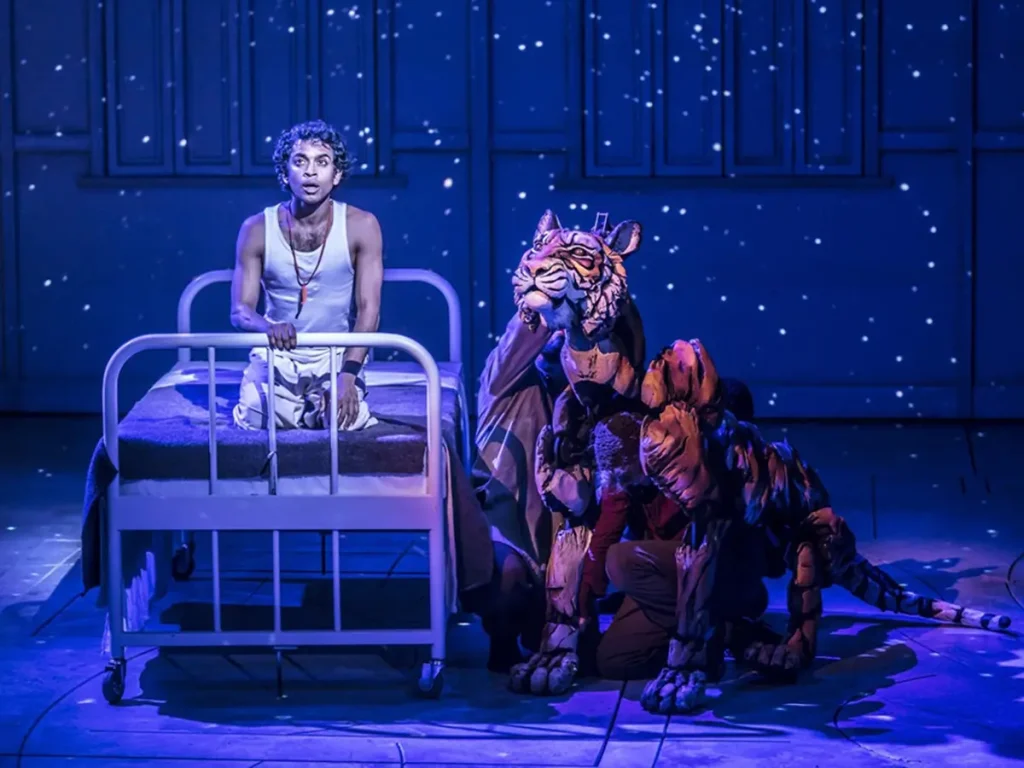In Dubai, experimental theater is quietly redefining the city’s cultural identity. While most visitors associate the performing arts here with polished musicals or traditional Arab storytelling, a growing number of artists are staging bold, unconventional performances. These plays often blur the lines between actor and audience, sound and silence, and even between languages. If you’re curious to see a performance in a shipping container, a warehouse loft, or a rooftop with only ten chairs and one lightbulb, Dubai will surprise you. The city’s experimental theater is a conversation—not a spectacle—and it’s happening all around.
Alserkal Avenue remains the heartbeat of experimental stagecraft
Tucked within Al Quoz’s industrial stretch, Alserkal Avenue is Dubai’s de facto arts district—and its black box theaters are often home to the city’s most provocative stage experiments. Spaces like The Junction or Warehouse 46 regularly feature devised pieces, improvisational theater, or site-specific performances. Here, you’re as likely to watch a play devised from WhatsApp chats as you are a movement piece choreographed around audience breath. These venues cater to risk-taking artists and an open-minded audience, often hosting post-performance discussions that extend the creative process beyond the curtain call.
The Courtyard Playhouse offers intimate, interactive shows that bend structure
Nestled just beside Al Quoz’s busier galleries, The Courtyard Playhouse leans into spontaneity. Though known for its improvised comedy and short-form sketches, it also hosts long-form experimental theater, often drawing from classical texts reinterpreted through modern or surrealist filters. Their actor training programs frequently feed into the shows, allowing for ongoing exploration of voice, gesture, and silence. Audiences here are close—sometimes even part of the performance—and no two evenings feel alike. The intimate courtyard architecture enhances this closeness, turning every performance into a shared human moment.
Pop-up performances in public spaces create immersive, unscripted moments
Some of the most inventive theater in Dubai doesn’t happen in theaters at all. Urban performance collectives have started staging scenes inside cafes, open rooftops, art studios, or even moving vehicles. These shows are usually unannounced or minimally promoted, encouraging spontaneous discovery. A monologue may begin in a bookshop aisle. A street performer might morph into a Shakespearean villain mid-traffic. These productions are about reclaiming public space and reawakening urban imagination. While dates are often whispered through creative networks, following local theater groups or attending art walks increases your chances of stumbling into one.
University-led theater labs contribute to the city’s experimental landscape
Institutions like NYU Abu Dhabi and the American University in Dubai host performance labs where emerging artists stage experimental projects as part of their academic journey. Though the venues may be campus-based, many shows are open to the public, especially during festival weeks or thesis seasons. Here, you’ll find projects blending projection art, real-time sound editing, and audience-led narrative control. These performances often confront identity, displacement, or memory—themes that resonate deeply in a multicultural city like Dubai. Students collaborate with international artists-in-residence, adding technical polish to raw experimentation.

Multilingual scripts allow experimental plays to cross audience boundaries
In Dubai’s theater circles, language is often viewed as a tool—not a limitation. Many experimental plays are performed in multiple languages or no language at all, using gesture, projection, or physicality to carry emotion. You might watch a Filipino actor perform Tagalog poetry while subtitles float behind them in Arabic and English. Or witness a South Indian folk form merged with Emirati desert tales in one continuous dramatic piece. These shows are usually born from community collaborations and supported by Dubai Culture initiatives, celebrating both shared and divergent narratives.
Cultural festivals are fertile ground for avant-garde performances
Events like the Sikka Art and Design Festival, Quoz Arts Fest, or the Emirates Airline Festival of Literature have gradually embraced more performative art forms. While traditionally visual or literary, these festivals now offer pop-up stages, audio-theater booths, or micro-performances within art installations. Some involve audience-participation storytelling or sound-based sensory journeys. These experimental formats draw visitors who may not usually attend theater, creating accessible entry points into a genre often misunderstood. Timing your visit with one of these festivals ensures exposure to the newest voices pushing theatrical form.
Experimental works are often self-funded and community-driven
Without the extensive institutional support found in other cities, Dubai’s experimental theater thrives through artist collectives and independent fundraising. Many creators stage low-budget productions in coworking spaces or empty villas, relying on ticket sales, crowdfunding, and personal networks. This scarcity breeds innovation. Sets are made from found objects, lighting is hand-rigged, and scripts evolve until opening night. Audiences are often invited to post-show dinners, feedback circles, or even rehearsals, making the boundary between viewer and maker nearly invisible. This intimacy fuels an ecosystem built on trust, resilience, and artistic hunger.
Online platforms and private WhatsApp groups reveal the underground schedule
Because mainstream channels don’t always cover experimental shows, those in the know turn to alternative spaces for listings. WhatsApp broadcast groups, private Telegram channels, and niche Instagram accounts act as digital bulletin boards. Some collectives post teaser clips, script excerpts, or rehearsal footage to build anticipation. These digital threads are often more personal than promotional, creating a sense of belonging among audiences and performers. Staying connected online is essential if you want to catch the next show before seats disappear—or before the venue changes last minute.
Dubai’s experimental theater reflects a city constantly reinventing how stories are told
In a place that reinvents its skyline every year, it’s no surprise that storytelling here also evolves. Experimental theater in Dubai doesn’t seek polish—it seeks presence. Whether whispered in an elevator or shouted across an alley, these performances ask you not to watch, but to feel. To pause. To question. And maybe even to speak back. If you’re open to surprise and willing to meet stories where they live—outside the usual spotlight—Dubai will show you how far theater can stretch.
This article was created by the editorial team at www.few.ae.
